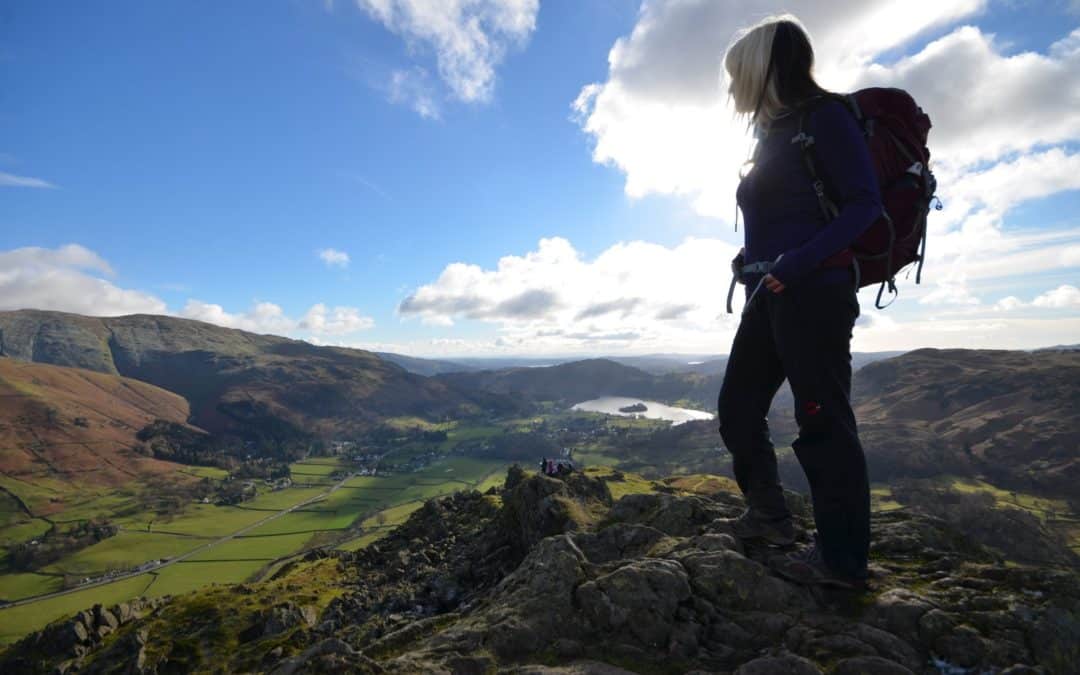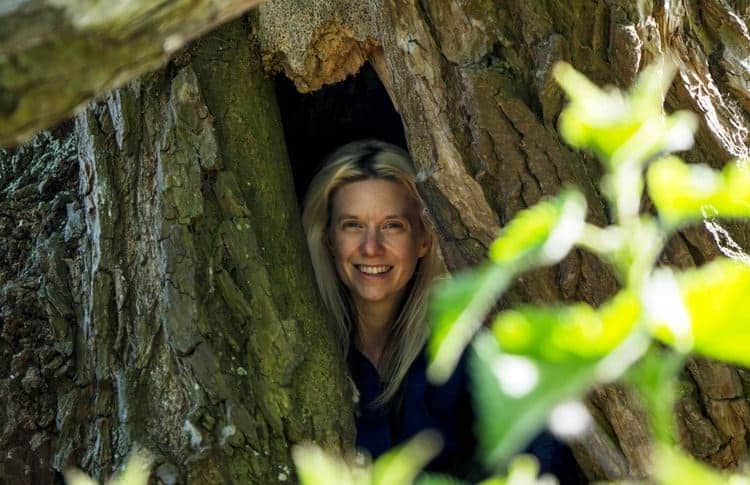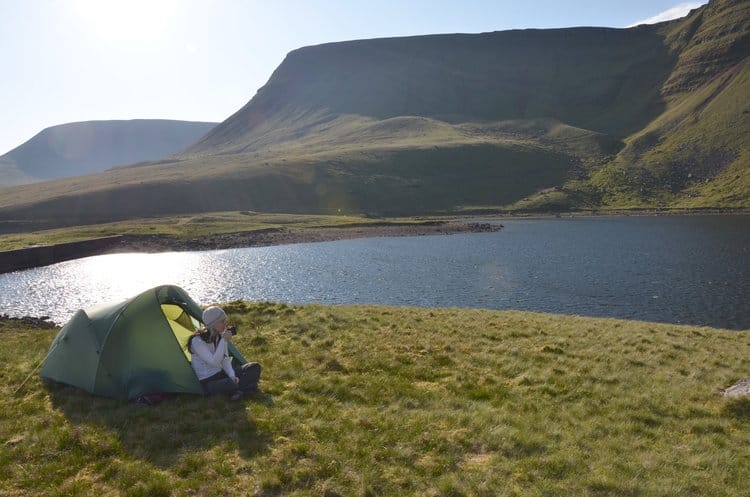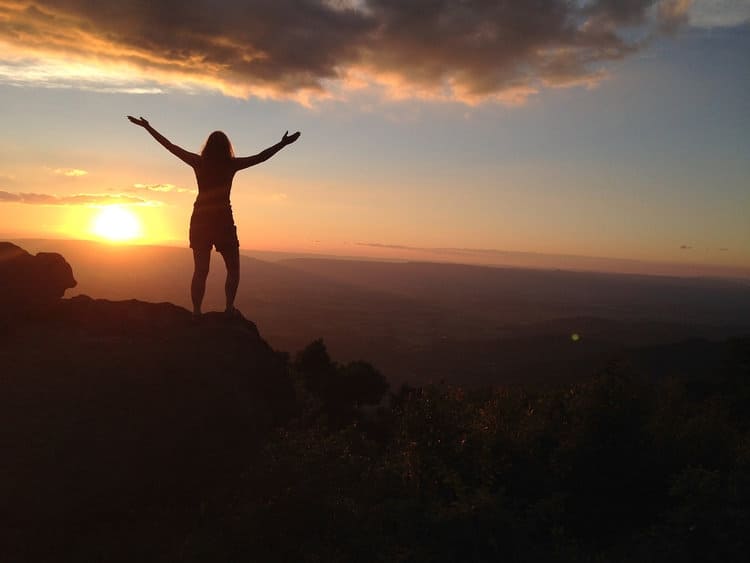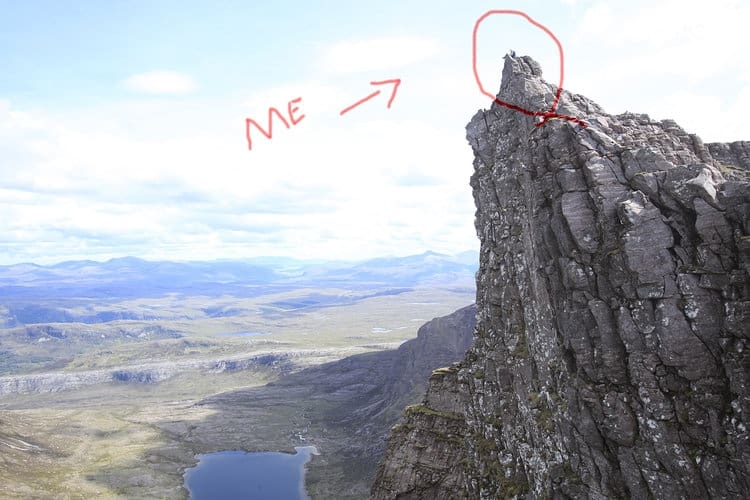Despite holding down a busy job being award-winning editor of Wanderlust Travel Magazine, Phoebe Smith also finds time to go on adventures, specifically searching out extreme sleeps! She was the first person to sleep at all the extreme points of mainland Britain – including the centremost point – which she did solo, on consecutive nights in 2014. Phoebe is also author of 8 books including the bestselling Extreme Sleeps and, most recent, Britains Best Small Hills (a great guide for wild camping spots!).
Name: Phoebe Smith
Home: UK
Age:Old enough to know better…
Environment I like the most: Mountains – pick the right one and you can see oceans, fields and deserts from the summit
Best place I’ve visited: Antarctica
Fav adventure: My Extreme Sleeps Challenge – camping at all the extreme points of mainland Britain, solo on consecutive nights (in winter).
Dream adventure: Spending a winter in Antarctica
Can’t go on an adventure without? My inflatable pillow. Seriously. Seek a good night’s sleep to be sure of an amazing adventure the next day.
Tell us about you….
I had a pretty standard childhood (from what I can tell!) doing fairly standard things – fighting with my brother, trying to take cookies from the biscuit tin, attempting to make the swing go all the way over the bar – but at school I always loved English. I joined a Creative Writing club when I was just 7, so words were definitely my first love. Despite that I still didn’t know what I wanted to be – does anyone really ever?!? – so left school and decided not to go to university right away, unlike all my friends. I took a year to do a whole lot of nothing – signing on, working in a pub, working in a video shop (that makes me sound quite old!), singing in a (very bad) indie band – then I found out about a visa I could get to work in the USA for 4 months. I applied and got it!
After a summer spent working and travelling up the west coast I knew I wanted travel to feature in my life too. I signed up to a Journalism degree but they wouldn’t let me do it on its own as I was told I ‘wasn’t journalist material’ (something I reminded them about recently!). It turned out to be the best thing ever, though, because I went on to study cultural theory alongside it (which I loved – read a lot of Margaret Atwood books), then got a place on the MA in English (again loved) and then went to Canada to work for a year.
I interned on a newspaper, started freelance writing for other publications, then headed to Australia where I went on my first wild camp when working as staff writer for a backpacker magazine. It changed my life. It drove me to seek out more adventure with my tent and I found the more I pushed my sleeping, the more my confidence grew and the more I pushed myself in my career. Now I’m editor of Wanderlust Travel Magazine by day and an extreme sleeping adventurer at night – the perfect combination!
Were you always adventurous?
I’d have to say no! I have an older (by two years) brother and he was always the adventurous one, he did DofE, talked of travelling and moving away and always loved to be outside. I was much happier being inside, staying close to home and playing my guitar! But then at some point in my teens we just had a complete switch. I ached to get away as far as possible, I wanted to challenge myself, to be in uncomfortable situations, to really test my limits – to travel and have adventures, he became happier staying around home. No one really knows why it happened, me included – maybe it’s like a Freaky Friday thing and we just don’t remember doing the body swap…?
Breaking into the travel writing industry must have been difficult?
Of course. It’s hugely competitive and everyone can write and everyone travels these days, so naturally most people think they can be a travel writer. The key thing is that a good travel writer is a writer who travels not a traveller who writes. The love of words, of the art of storytelling has to come first, above anything else. I worked my butt off to get here, interning on newspapers first, making tea and doing research for staff writers who got all the credit, sitting in courtrooms and inquests and covering local council meetings – it all laid the groundwork for becoming the journalist I am today. It took years and years of pitching and being rejected to get my first travel article but the difference between me and those who didn’t make it, is that I refused to give up.
You’ve travelled to so many places. Do you have a favourite?
It’s such a hard questions to answer because it’s usually the place I’ve just come back from! But definitely the wilder and remote the better. I love the Arctic and Antarctic the best I think. I love the feeling that nature is boss and we are merely permitted guests who are often tested to our limits just being there. But then I do simply adore the UK – we have so much diversity in terms of landscape, accents, people, and history – in such a tiny island and I think that’s something to be proud of and definitely something worth exploring.
You are maybe best known for your extreme sleeps…how did this concept come about?
When I returned from travelling and cutting my teeth as a writer I came home penniless. I took a job on a local newspaper and was really struggling to afford to travel anywhere but I still wanted adventure. So I changed my mindset. I made a conscious decision to become a tourist in my own backyard. I looked to places close to home – revisited areas I’d been forced to walk in when I was a child – and it was honestly like seeing them for the first time.
Walks became longer until they became coupled with campsite stays and then I took the plunge and did my first solo wild camp. Loads went wrong – I was chased by sheep, chastised by a youth group and thought there was an axe murderer outside my tent – but I did it – I survived it and from that moment on was an instant addict.
I began to seek more adventurous places to wild camp – under rocks, on mountain tops, amid the wreckage of WWII air crashes – the weirder the better, until finally I set myself a challenge of sleeping at all the extreme points of mainland Britain, solo, on consecutive nights. And thus my transition into an extreme sleeper was complete!
How did you fund your extreme sleep adventures?
That’s the great thing about them – other than paying for a bus/train/petrol to get me there, they are completely free. Wild camping is literally pitching up under cover of darkness wherever you like, taking lightweight kit and lots of yummy food – so the costs are very low. Anyone can do what I do!
Any advice for someone wild camping for the first time?
Take good kit or at least lots of layers so you don’t get cold. Plan where you’re going to sleep beforehand and recce it in the daylight first to find a suitable spot (everything looks different at night). And time it for good weather so you can be sure of the best experience. And don’t be afraid to call it a night (excuse the pun) if you’re not enjoying it – the wilds will be there another day…
You work a busy full time-job, write books, maintain a blog, speak at events and still find time to fit in adventures…. how?!
I honestly don’t know! I am absolutely awful at saying no! I have so many passions and ideas I want to do it all and cram a ridiculous amount into every single day. I guess I just don’t waste time complaining about having no time; I use every bit of time I get to work on the things that I love. I do think if you do what you love then it never really feels like work. Though even I am starting to realise I need to slow down a little and start allowing myself time to sleep (somewhere outdoors, though, naturally!).
How long does it take you to write a book?
Gosh, well it depends on the book. The actual writing up doesn’t have to take that long – a few months, but the research always does – years often. Guidebooks especially call for a huge amount of detail and attention to detail, which needs constant double checking in case things change. I do tend to write a bit every day – whether in the morning before I head to work, in my lunchbreak or after work in the evening. The editing process often takes twice if not three times as long as the writing, then there’s proofing, second proofing, sorting maps etc etc. Honestly I compare book writing to childbirth: it’s a slow, painful process that when we’re going through it we swear we’ll never do it again and then this beautiful book is presented to us at the end and it’s the best thing we’ve ever done. Before you know it, we’ve agreed to do another. I’m currently working on my ninth… I never learn!
Tell us about your most recent book, Britain’s Best Small Hills.
It’s an idea I’d been kicking around for years. I’ve loved mountains and been scrambling up and down them for the past decade but had unwittingly become something of a hill snob – always after the highest or most dangerous or extreme. I knew I’d developed a love for them when I started travelling, but then I found a photo of me on my first summit when I was 6 (taken up by my dad) and realised that I had it in me all along. That – though I didn’t realise it at the time – was a defining moment for me. And so many people love the idea of what I do with wild camping and getting outside but don’t know where to start.
I wanted to create a book that showed them. Every single one of the 60 hills in it not only make good bivvy/tent/hammock spots, but also have great views and stories behind them – from one with a little ‘pixie house’ on the side of it, to another that is said to be haunted by the ghosts of Viking soldiers or one that, though just 164m high, was the site of the worst avalanche in British history. Then there’s yet another that shows in spectacularly graphic fashion the geological fault line where the highlands meet the lowlands of Scotland – small hills are amazing. I intend to literally make mountains out of molehills with this book.
Do you see yourself continuing to work as a writer, or do you have plans to change one day?
I will always be a writer first and foremost. I genuinely love words and the craft of storytelling. I come alive when sharing my tales with others and feel it was what I was always meant to do. So even if it all ended tomorrow I wouldn’t actually be able to stop writing, words just fall out of me – I would be lost without pen and paper, I never go anywhere without them because sometimes I just NEED to write.
What would your advice be to your 10-year-old self?
Enjoy the little things, because one day you`ll look back and realise they were the big things.
Any more adventures on the horizon?
Always! Every single day brings a new adventure – you just need to keep your eyes peeled and your mind open…
Please do consider supporting the Love Her Wild community by becoming a Patreon! Not only will you be helping women in accessing the outdoors, but there are great benefits including giveaways and access to an exclusive newsletter.
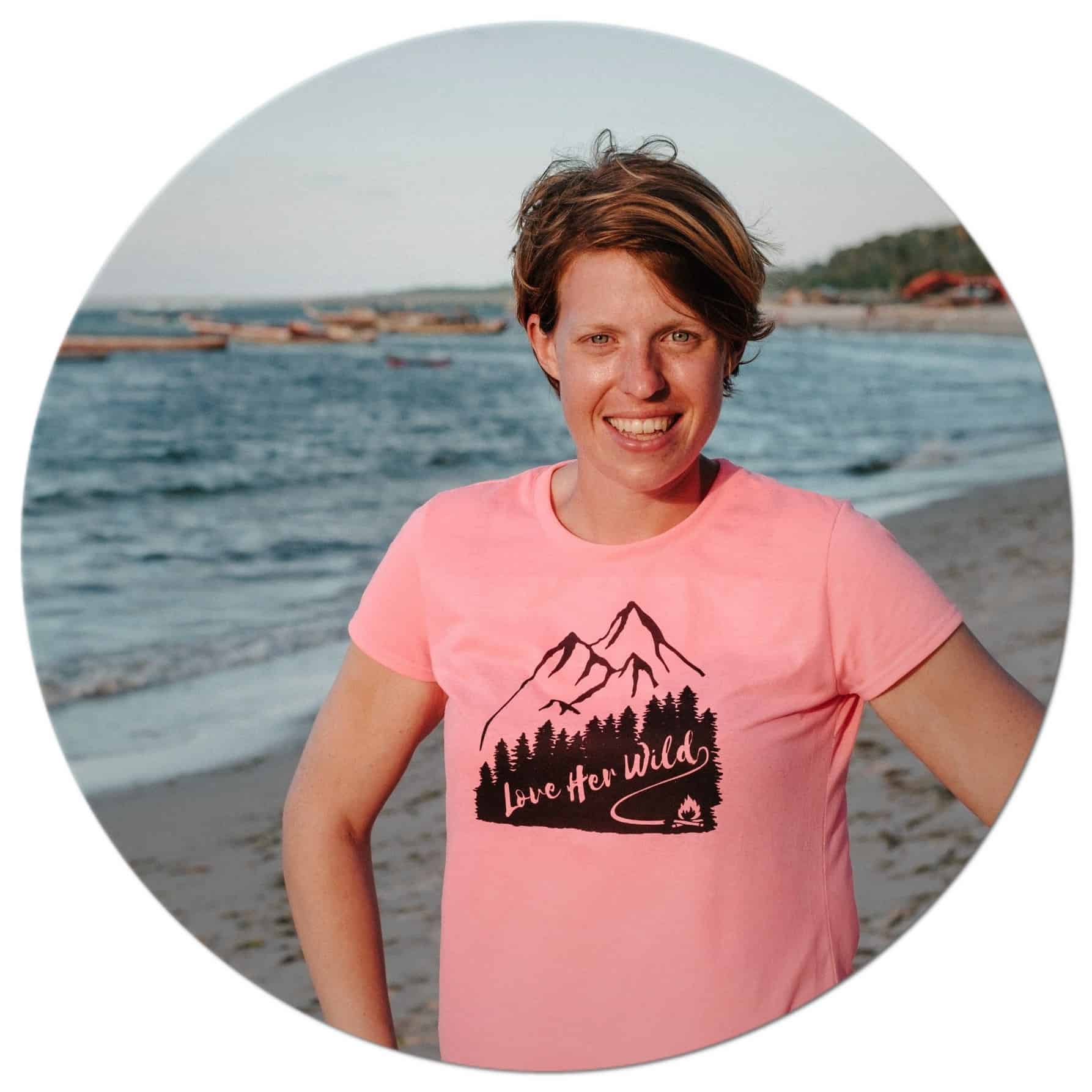
Bex Band founded Love Her Wild. Alongside running the community, she is an author, blogger and speaker on all things adventure and conservation. For her work championing women in the outdoors, she has been nominated for multiple awards and was named one of the UK’s Top 30 inspirational entrepreneurs.
